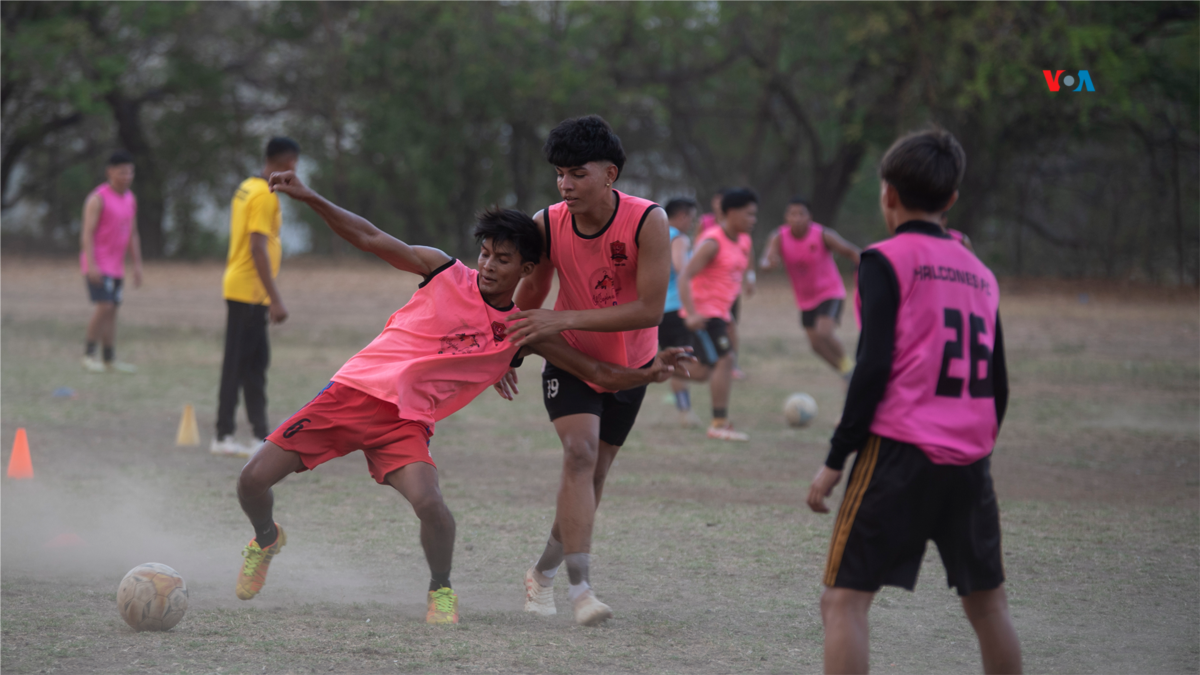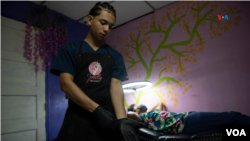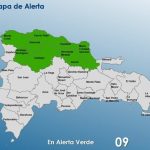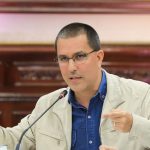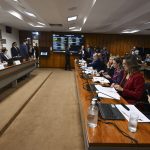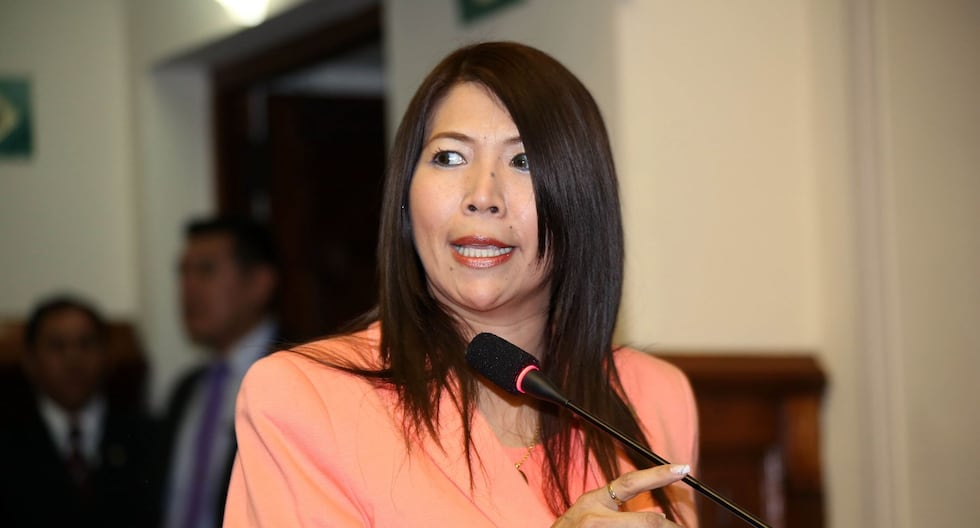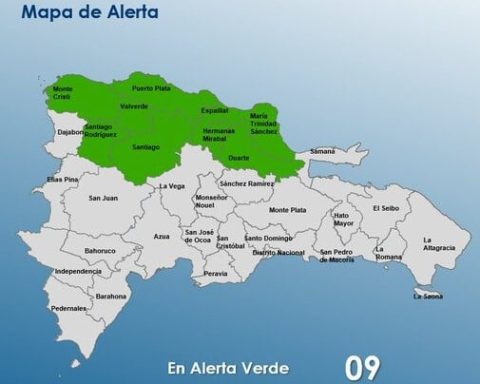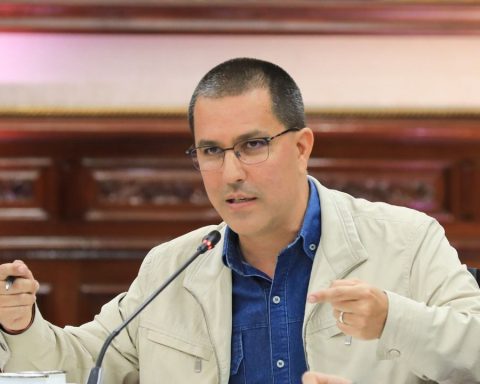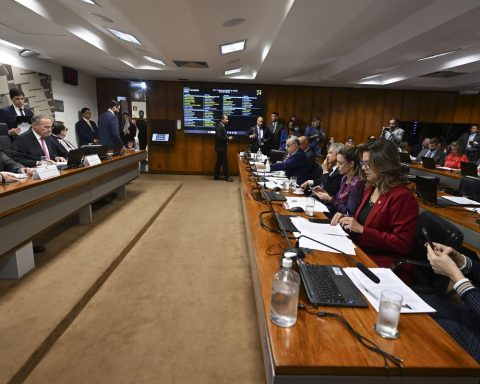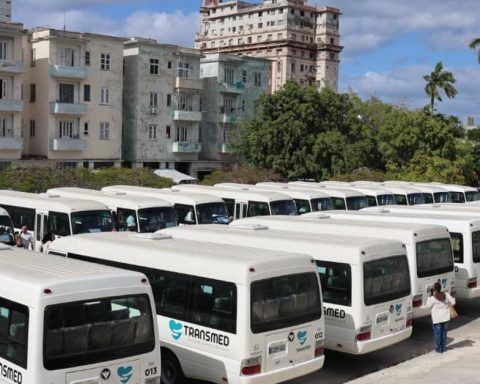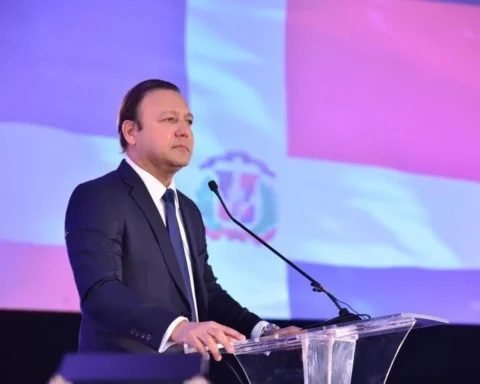When Carlos Francisco Moreno drowned on a beach in Nicaragua in 2020, the life of Yobel Moreno, his sister, changed. From not knowing anything about football or being interested in it, she became the leader or president of an amateur team called Halcones FC, in Managua, inspired by the legacy her brother left her.
His brother founded the Falcons team when he was young and the name was given after a class in which the most ferocious predators were discussed.
“The falcon is the fastest hunter, it has the sharpest vision, and my brother told me: ‘I want my players to be that, football hunters,'” says Moreno, who took over the team after that event that marked her for life.
“What happened to my brother marked a before and after in my life,” this woman tells the Voice of America at “El Cajón de Victoria”, a beauty salon located in Managua where she serves clients. At least six members of the Halcones soccer team also work in that business, breaking sexist stereotypes.
In this salon, soccer players cut hair, design eyebrows and do manicures to earn money to pay for refereeing, clothing, uniforms, socks and the rest of the sports equipment.
“The idea came about because I have been a manicurist for five years and it all started when one of the players told me he wouldn’t continue because he didn’t have football boots or the referee’s fee,” says the team director.
“I told him: wouldn’t you like to learn how to do beautiful things? I asked him if his masculinity didn’t affect them, he said no, and that’s how it started. First there was one and then more have joined,” she continued.
At the El Cajón de Victoria salon, boutique clothing is sold, but makeup and other beauty services are also provided.
Moreno is aware that the work performed by the players “breaks stereotypes and machismo” and leaves behind the idea that working in beauty salons is exclusively for women.
“They (the players) now try hard and do well, I think the barriers are in the mind,” he said.
Jobs related to beauty services are mostly occupied by women in Nicaragua, a country considered “macho” by feminist organizations.
In fact, a report on economic and social rights in Nicaragua published by the Fundación Puentes para el Desarrollo, a Central American think tank, revealed that women’s participation remains limited in several key sectors of the economy, as a result of a series of cultural conventions.
According to The reportThe average pension received by women represents 77% of that received by men.
“In Nicaragua, the opportunities for women to have, despite having more education, more job opportunities, are less than those for men,” she told the VOA Edipcia Dubón, economist, researcher and executive director of the Bridges for Development Foundation.
John Walter, 18, is one of the players on the Halcones team who works at the beauty salon in El Cajón de Victoria. Walter says he heard about the team through another friend and although he didn’t have the financial means to play, he found the option thanks to Moreno, whom he calls “the president.”
“I contacted her and she helped me,” says Walter, referring to Moreno. “The president gave us a lot of help. I didn’t have much income and thanks to her I was able to play with the boys,” he said.
Walter says that people were surprised when they first arrived at the salon.
“They told us that it was not very common to see men in salons and that it surprised them,” she said.
But Walter argues that he downplayed these comments because of his love of football and what it represents for him. “For me, sport serves as a psychological treatment and allows me to relax when I feel bad,” he concluded.
Connect with the Voice of America! Subscribe to our channelsYoutube, WhatsApp and to newsletter. Turn on notifications and follow us on Facebook, X and Instagram.
